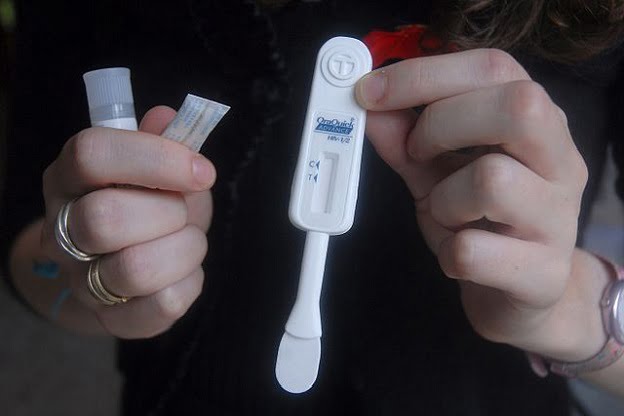Sexual Health, Questions & Answers
Q&A: Chlamydia From A Bikini Wax? Chlamydia Risk And Transmission
QUESTION: I had a yearly exam in January, then started getting bikini waxes. I noticed some strange things going on down south so I got another exam in June. After the exam, the doctor called to tell me that I had chlamydia and to warn me about having unprotected sex. I only had protected sex between the January and June exams. Between the two exams, I had 3 partners, all with condoms. All three claim that they have gotten tested and that they don’t have chlamydia. Is it possible to get chlamydia from a bikini wax?
Chlamydia is a bacterial infection and it is only transmitted sexually, so it is not possible to have gotten an infection from a bikini wax (or a toilet seat, towel, or other rumored means).
It is transmitted between sexual partners through vaginal, oral or anal sex and can be cured with certain antibiotics.
Risk With Proper Condom Use: Very Low
You mentioned that you had protected sex with three different partners between your two exams. Presumably, by “protected sex” you mean that you and your partner used a condom during sexual intercourse.
Assuming that you used a condom correctly and every time that you had intercourse, your risk of getting chlamydia would be very low unless the condom broke or slipped off.
Unfortunately, condoms are often used incorrectly — and that doesn’t just mean mistakes with opening packages or turning the condom inside out.
More specifically, many people wait a while before putting a condom on a guy’s penis and, in the mean time, engage in all sorts of genital rubbing and “slip-ins” which can transmit infections such as chlamydia, gonorrhea, syphilis, herpes, HPV or even HIV, particularly as sexual fluids such as pre-ejaculate and vaginal fluids may mix. This is NOT “protected” sex.
Also, because chlamydia can be transmitted during oral sex, if you received oral sex from any of these three partners, they could have transmitted the infection to you in that way.
Partners Telling The Truth?
That said, a confusing part seems to be that your partners all stated that they do not have chlamydia. They may be telling the truth, or lying, and you may never know.
Here are some possible scenarios: If you received oral sex from another partner (but did not have intercourse with the partner), it may be that partner who gave you chlamydia.
It is also possible that one of your three partners used to have chlamydia, but no longer does, possibly because he or she has since been treated for something else (such as a cold) that was treated with the same specific type of antibiotic with which Chlamydia would be treated.
Further, it is possible that one of your partners is lying. While lying is always a sad state of affairs (particularly by someone you made yourself physically and emotionally vulnerable to within the context of a sexual relationship), it occurs all too often in the context of sexually transmitted infections (STI).
For example, one study found that only about half of some individuals who were infected with the human papillomavirus (HPV, which can cause genital warts or cervical problems) felt it was important to tell their sexual partners about having HPV. In another study, about one fourth of HIV positive individuals did not tell their sexual partner they had HIV.
In general, people are more likely — but not guaranteed – to be honest with their partners if they are in a committed relationship, if they feel that being honest is the right thing to do, if they care about their partner, or if they feel that their partner needs to get treated.
Unfortunately, even caring or committed partners sometimes lie in order to protect (in their eyes) the relationship and/or their own pride or self-image. Good for you for being honest and contacting your previous partners.
Partner Notification
For those who feel they cannot tell past or current partners directly, one can ask a healthcare provider for help with “partner notification”, whereby they will call or email your past or present partner to let them know (confidentially) that they have been named as a partner of someone who has tested positive for an infection.This is a confidential process and your identity will not be disclosed.
Some STIs end up being mild nuisances that are easily cured; others are life-changing, cause bothersome symptoms or fertility problems, or are life-threatening. This is why it is always important to communicate with partners about infection and testing issues, even when you cannot necessarily count on them to be honest with you (which is why it’s important to get tested, as you did).
Q&A: Common Sexually Transmissible Infections And Their Symptoms









